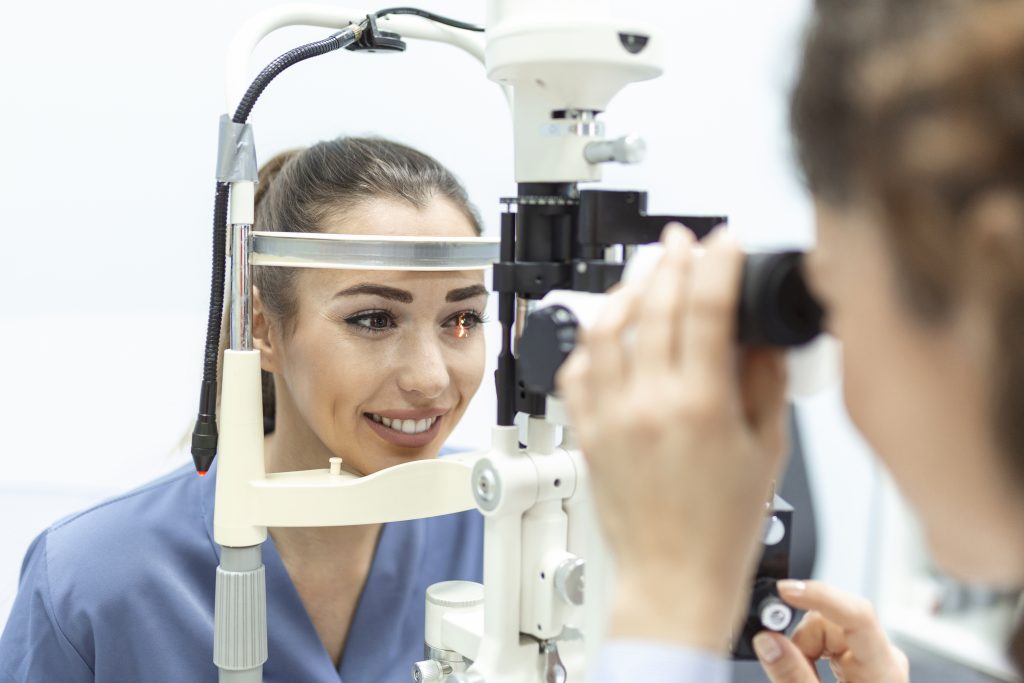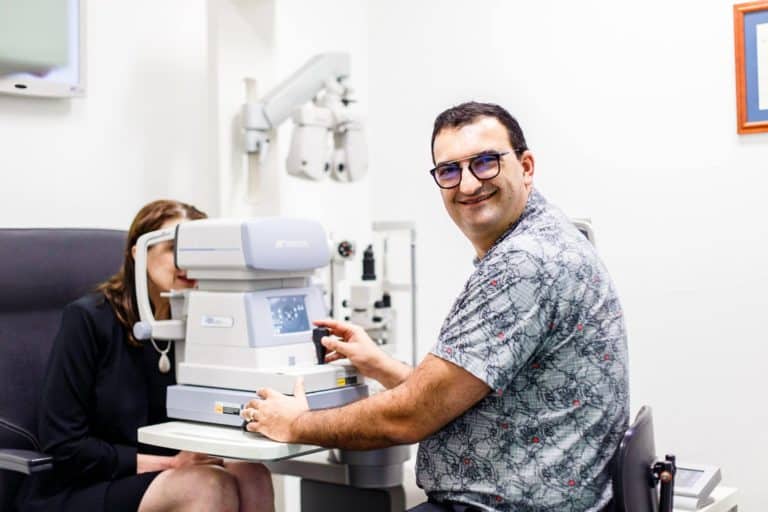Maintaining healthy vision is vital for leading a vibrant and fulfilling life. Our eyes serve as the essential gateway through which we perceive the world, allowing us to appreciate its beauty and complexity. Unfortunately, many individuals neglect the significance of preserving their eye health. Good eye health transcends merely achieving clear vision; it includes safeguarding the overall quality of our experiences and how we engage with our surroundings. By prioritizing eye care, we can ensure that our sight remains sharp, enhancing our lives and enriching our interactions with the world around us.

Prioritize Your Eye Health: The Importance of Regular Eye Health Assessments
Scheduling regular comprehensive eye exams is crucial for safeguarding our vision and proactively preventing severe, potentially blinding eye conditions. These assessments extend beyond simply measuring visual acuity; they involve a meticulous analysis of overall eye health. Utilizing advanced diagnostic equipment and specialized tests, eye exams can effectively identify and diagnose conditions such as glaucoma, cataracts, and macular degeneration. These conditions are among the leading contributors to blindness in Australia, making early detection imperative for effective treatment and management.
Eye health stands as a significant public health concern in Australia, particularly as the population continues to grow and age. The prevalence of various eye conditions is rising. For instance, glaucoma, a collective term for diseases that damage the optic nerve, impacts thousands of individuals across the nation. Likewise, cataracts, which involve the clouding of the eye’s lens, and macular degeneration, affecting the central retina, are the leading causes of vision impairment. These conditions not only diminish visual acuity but also significantly hinder individuals’ autonomy, mobility, and overall quality of life.
The encouraging news is that regular, comprehensive eye exams facilitate the early detection of these serious issues, enabling timely intervention and treatment. Early diagnosis, coupled with appropriate management, can halt the progression of these diseases and, in some cases, preserve good vision for many years to come. By prioritizing eye health and committing to regular check-ups, individuals can take proactive steps toward maintaining their vision and addressing any underlying issues that could jeopardize their sight.
By recognizing the importance of eye health and staying informed, we empower ourselves to make educated decisions that will help ensure our vision remains clear and vibrant throughout our lives. The more we understand about our eye health, the better equipped we are to protect it from potential threats.

Transformative Eye Health Journey: One Woman’s Life-Changing Experience
Imagine walking into an eye clinic for what you believe is a routine check-up, only to be confronted with the shocking news that you have a condition that could permanently impair your sight. This was the experience of a mother of four, who received a life-altering glaucoma diagnosis at just 41 years old. The immediate shock was overwhelming; she vividly recalls the sinking feeling of being told she had an incurable disease, compounded by the unsettling realization that she was the youngest patient in the waiting area that day. This stark experience highlights a critical reality — vision problems can affect anyone, regardless of age.
Fortunately, her diagnosis was made early enough to permit effective intervention. Thanks to prompt and appropriate treatment, she managed to slow the progression of glaucoma, thus protecting her vision and enabling her to fully engage in her life while witnessing her children’s growth. This positive outcome was not merely a chance occurrence; it was the direct result of a comprehensive eye exam that detected the disease before irreversible damage could occur.
Her story serves as a powerful reminder: regular eye exams are essential, even for individuals who do not exhibit visible symptoms. Many serious eye conditions, including glaucoma, often develop without any noticeable signs. By the time a person recognizes changes in their vision, permanent damage may have already taken place. Routine check-ups can uncover these hidden dangers, allowing for timely intervention and treatment.
Do not wait for symptoms to compel you to seek care. Safeguarding your vision begins with proactive measures. This mother’s narrative highlights the potential stakes — how a simple eye exam can be the determining factor between maintaining your sight and facing the prospect of blindness.
Why You Should Never Underestimate the Importance of Regular Eye Health Evaluations
The Optometry Board of Australia strongly recommends that all Australians undergo a comprehensive eye exam every two years. For children and individuals over the age of 65, annual check-ups are advised, along with more frequent visits if recommended by an optometrist. Despite the evident significance of these routine evaluations, many Australians fail to prioritize their eye health. A recent survey conducted by the Australian College of Optometry revealed that one in four Australians had not undergone an eye exam in the past two years, and more than half of those surveyed were unaware of the necessity for regular evaluations.
Many people may mistakenly believe that their vision is sufficient and thus do not require an eye exam, or they may assume that eye problems only concern older adults. However, numerous eye conditions only reveal noticeable symptoms once they have significantly advanced, making early detection vital for effective treatment and management.
Comprehensive eye exams extend beyond basic vision checks. They encompass a complete evaluation of eye health, utilizing specialized equipment and tests to identify conditions such as glaucoma, cataracts, and macular degeneration. Furthermore, these exams can uncover underlying health issues, such as high blood pressure, diabetes, and thyroid disease, that may adversely affect your vision and overall health.

Proactive Strategies for Preventing Eye Diseases and Maintaining Optimal Vision Health
In addition to scheduling regular eye exams, there are several proactive measures you can take to help prevent or manage most eye diseases:
- Maintain a Healthy Lifestyle: Engage in regular physical activity, consume a well-balanced diet rich in vitamins and minerals, and avoid smoking to promote overall eye health and well-being. These lifestyle choices not only benefit your eyes but also contribute to your overall health.
- Control Your Blood Pressure: High blood pressure can heighten the risk of cardiovascular-related eye diseases, making it essential to regularly monitor your blood pressure and implement necessary measures to manage it effectively. Keeping your blood pressure in check can significantly lower your risk of serious eye conditions.
- Adhere to Your Treatment Plan: If diagnosed with conditions such as cataracts, macular degeneration, glaucoma, or diabetic eye disease, it is crucial to diligently follow your prescribed treatment plan to prevent further disease progression. Adhering to your treatment can help maintain your vision and improve your quality of life.
- Protect Your Eyes: When participating in activities that pose a risk to your eyes, such as using power tools or engaging in sports, always wear protective eyewear like safety glasses or goggles to safeguard your vision. Taking these precautions can prevent serious injuries and preserve your eyesight.

Take Control of Your Eye Health: Schedule Your Eye Exam Today
If it has been some time since your last eye exam, or if you know you are overdue for one, now is the time to act. Your eyesight is a precious asset that should never be taken for granted. Schedule an appointment with your Optometrist today and take the crucial first step toward maintaining optimal vision health. Remember, prevention is always more effective than treatment, and early detection is essential for sustaining healthy eyesight throughout your life.
This article aims to enhance awareness and understanding of essential eye health topics.
It is not intended to serve as a substitute for professional advice, diagnosis, or treatment.
Always consult your healthcare provider before incorporating this information into your health regimen.
References:
- Australian Government Department of Health. (2022). Eye health. https://www.health.gov.au/health-topics/eye-health
- Optometry Board of Australia. (2020). Guidelines for comprehensive optometric care. https://www.optometryboard.gov.au/Codes-Guidelines/Guidelines-for-Optometrists.aspx
- Australian College of Optometry. (2021). The Australian public’s knowledge and attitudes towards eye health and optometry. https://www.aco.org.au/the-australian-publics-knowledge-and-attitudes-towards-eye-health-and-optometry/
- Glaucoma Australia. (2022). What is glaucoma? https://www.glaucoma.org.au/about-glaucoma/what-is-glaucoma/
- Macular Disease Foundation Australia. (2022). About macular degeneration. https://www.mdfoundation.com.au/macular-degeneration/what-is-md/
- Diabetes Australia. (2022). Diabetes and eye health. https://www.diabetesaustralia.com.au/diabetes-and-eye-health/
The Article: Eye Examination Prevents Blindness for One Woman first appeared on https://writebuff.com
The Article Eye Examination Saves Woman from Blindness Was Found On https://limitsofstrategy.com

